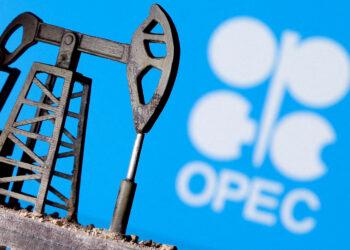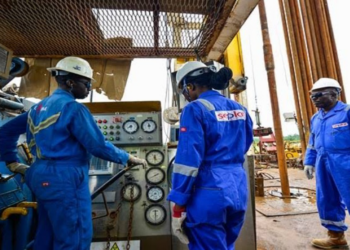The price of crude oil is expected to rise further on Monday, above the $90 benchmark, after Iran’s attack on Israel over the weekend, analysts said on Sunday.
Iran launched explosive drones and missiles at Israel late on Saturday in retaliation for a suspected Israeli attack on its consulate in Syria on April 1, a first direct attack on Israeli territory that has stoked fears of a wider regional conflict.
Concerns over how Iran might respond to a strike on its embassy in Damascus helped prop up oil prices last week, with Brent crude reaching a peak of $92.18 a barrel on Friday, the highest since October.
By the end of the day, the price had adjusted, with Brent crude closing 71 cents higher at $90.45, and U.S. West Texas Intermediate crude futures gaining 64 cents to settle at $85.66.
Trading is closed on Sunday.
In line with previous trends, analysts anticipate that a response from Israel could further elevate crude oil prices, surpassing the $90 per barrel benchmark.
Iran, a minerals-rich state for which oil is the major source of revenue, has increased its exports in recent years.
However, tensions with Israel would lead to cutbacks in supply, which in turn could drive up the price of crude oil in the global market, some analysts believe, experts say.
- “Oil prices might spike at the opening as this is the first time Iran has struck Israel from its territory.
- “How long any bounce will last will depend on the Israeli response.
- “Also today’s G7 virtual meeting needs to be monitored, with an eye on if they target or not Iranian crude exports,” said UBS analyst Giovanni Staunovo.
Impacts on oil shipments as war looms
Furthermore, another critical aspect to consider is the potential impact on the flow of oil through the Strait of Hormuz, which accounts for about one-fifth of the world’s daily oil consumption.
The Iranian Revolutionary Guard’s navy commander announced on Tuesday that Tehran might close the Strait of Hormuz if required.
Additionally, a report from Iran’s IRNA news agency on Saturday noted that the Guards had commandeered the Portuguese-flagged MSC Aries and moved it to Iranian waters.
- “Crude prices already included a risk premium, and the extent to which it will widen further almost exclusively depends on developments near Iran around the Strait of Hormuz,” said Ole Hansen at Saxo Bank.
Israel’s response so far
Israel Defense Forces spokesperson, Daniel Hagari, confirmed that barrage missiles and drones were launched by the Iranian military.
Air raid sirens and loud booms sounded across Israel on Saturday evening.
However, he said 99% of the attacks were intercepted, describing it as a significant achievement.
- “The Iranian threat met the aerial and technological superiority of the IDF, along with a strong fighting coalition — which together intercepted the overwhelming majority of the threats. 99% of the threats launched towards Israeli territory were intercepted — a very significant strategic achievement,” Hagari said.
At this time of this press, Israel was yet to release an official statement on what the response would be after the missiles were launched at its territory.
Meanwhile, in a statement released late Saturday night, President Biden condemned the Iranian assault and said the U.S. had “helped Israel take down nearly all of the incoming drones and missiles.”
The president disclosed that over the last week, US forces had “moved aircraft and ballistic missile defense destroyers to the region” in anticipation of the attack.
Biden also noted that he would convene a meeting of leaders of the Group of Seven major economies on Sunday to coordinate a diplomatic response to the Iranian attack.
What you should know
- The price of crude oil is often influenced by global events, which significantly impact the dynamics of demand and supply.
- Nigeria, which derives around 90% of its revenue and foreign exchange earnings from crude oil sales, is a major player in the global market.
- Therefore, Nigeria closely monitors situations like conflicts in the Middle East, as they can affect oil prices and expose the country to the volatility of global trade.






















